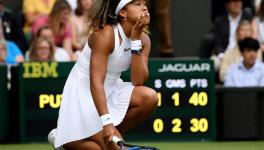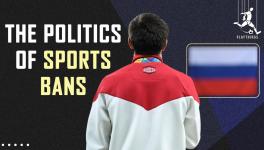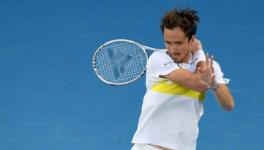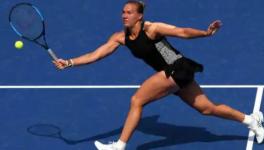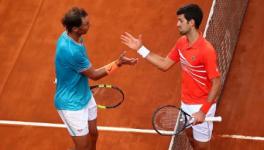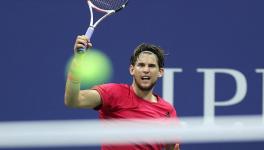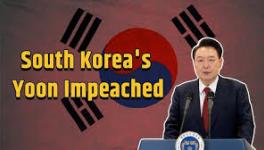Opinion: Wimbledon's Ban Punishes the Wrong People
Let's be clear on two issues: 1. Sports and politics are fundamentally and without exception inseparable. 2. Russia's invasion of Ukraine is a terrible war of aggression that must be condemned – as must those responsible, first and foremost Russian President Vladimir Putin.
But the exclusion of players from Russia and Belarus sends a very wrong signal. This is because we are talking about individuals without direct institutional or activist backgrounds being punished for a war and the actions of their countries' political leaders, with which they have no direct contact, neither as athletes, nor as private citizens. The intention may be right, but the wrong people are being affected.
Wrongful collective punishment
The words and actions of Russian and Belarusian athletes do matter of course, simply because they have such a high public profile. Therefore, it is desirable for athletes from those two countries to distance themselves from the actions of their political leaders – but this mustn't be made mandatory.
Yet the Wimbledon decision demonstrates that the stance of one individual made no difference.
DW Sports reporter David Vorholt
Shortly after Russia launched its invasion, Daniil Medvedev, then the men's No. 1 in the world rankings, spoke of how difficult it had been waking up to "the news from home." Later he stressed at a press conference that "I'm all for peace.'' He also used his Instagram account to call for "peace between countries" on behalf of "every kid in the world."
Sure, this is not a strong condemnation of the people behind Russia's invasion, but at least he denounced war. Self-interest may be involved here, but that doesn't change anything.
And even if an athlete fails to distance himself or herself, the individual is not directly connected with the events, certainly not responsible for what's happening and therefore doesn't deserve to be punished for them. This is the collective punishment of individuals and should not be allowed to happen.
Sporting association or individual athlete?
In a world shocked by this war, it is important to take a stand, and this includes the world of sports. European football's governing body UEFA was right to exclude the Russian FA and therefore teams like Zenit St. Petersburg from all competitions until further notice. It would also have been correct to exclude Russian and Belarusian athletes from the Paralympics. Although individual athletes would have been affected, unlike tennis players, Paralympians represent their National Paralympic Committee.
Sanctions against Russian federations have also been correctly imposed in other sports. But this thinking cannot be applied to individual athletes. After all, national sports associations or other state and non-state sports organizations bear a responsibility that an individual tennis player simply does not.
Collective punishment and symbolic politics
Excluding the Russian team from the Davis Cup would be right, excluding Daniil Medvedev from a singles tournament is wrong. Two tennis events, two different conclusions. The crux of the matter is that in the Davis Cup, players compete for their country or national association – even when they play singles matches. This is comparable to Paralympians, who despite being individual athletes compete for their national team and represent their national committee.
In Wimbledon and the other Grand Slams – as well as in all other tournaments on the ATP or WTA Tour, the players compete strictly on their own behalf. The prize money and world ranking points go to the individual not to any national team or federation – as do any penalties that may be assessed.
Wimbledon is the one Grand Slam played on grass
Based on this argument, the men's (ATP) and women's (WTA) players' associations responded swiftly and in sync to the Wimbledon organizers' decision.
While the ATP stressed that it strongly condemned Russia's warlike behavior, it also said the Wimbledon decision amounted to "discrimination." The WTA said it was "very disappointed" by the move.
Competing under a neutral flag?
The motivation behind the ban may be right, but the organizers could have started with a different approach – for example, by investigating possible connections between sponsors and Russian businesses, politics and the power circle around Vladimir Putin,
Not just that, but the All England Club could have had the Russian and Belarusian players officially compete under a neutral flag, as is currently the case for ATP and WTA-organized tournaments.
This is a case of athletes being discriminated against solely based on their nationality – collective punishment and symbolic politics par excellence. Just imagine if Wimbledon organizers were to check passports at the Church Road entrance – and refuse entry to people from Belarus and Russia. Unthinkable, isn't it?
This article has been translated from German.
Get the latest reports & analysis with people's perspective on Protests, movements & deep analytical videos, discussions of the current affairs in your Telegram app. Subscribe to NewsClick's Telegram channel & get Real-Time updates on stories, as they get published on our website.











